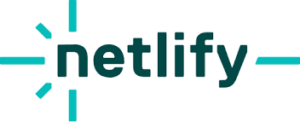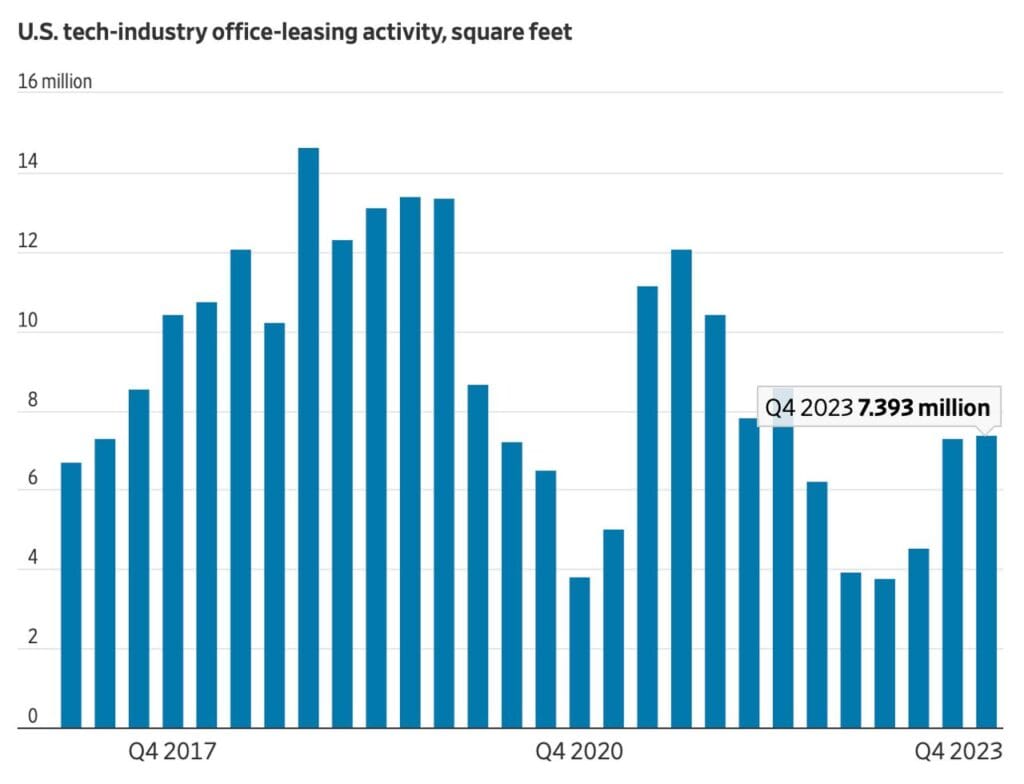The Rise of Remote Engineering Talent Among U.S. Tech Companies
Embracing Remote Work: A Transformational Shift
In the US, ten prominent tech companies are striving to have a remote workforce. Owl Labs study found that 62% of workers aged 22 to 65 claimed to work remotely at least occasionally. Having the luxury of access to global competent labour, they have achieved astounding success and reached billions of dollars in evaluation. Essentially, many of them started what used to be considered a radical experiment of working from home before COVID-19. Today, they have become a crème de la crème of remote employers and a proven market example that a geographically dispersed team is capable of successfully growing the project in the US market.
Why Remote Work Challenges Traditional Models
The data about these companies has important implications for the tech market. Most tech companies still are conservative about having workers working from home all the time. For example, Facebook, Google, and Oracle still have gigantic offices. The agency cost of governing such a centralized corporation is enormous, and their access to talents outside the US is heavily dependent on the US immigration policy, which changes with each administration.Advantages of Fully Remote Companies
Unlike work-in-office companies, the work-from-home companies covered in this article involve little to no cost of having an office, worrying about bureaucracy, or sourcing talents considering geography. Why, then, do most companies insist on having their staff come to the office? The prevailing answer is controlling and predictably disciplining staff. Whether this is true depends on a particular company. Yet it is not true in every case, and this is exactly what the table below aims to demonstrate.Profiles of Remote-First U.S. Tech Companies
Automattic: WordPress and Beyond
 Automattic is a well-known creator of WordPress, a time-proven classic for everyone who works with the Web. They are also behind WooCommerce, Tumblr, Simplenote, Jetpack, Longreads, Day One, PocketCasts, and more. Recently Automattic acquired WPAI, a startup that makes AI solutions for WordPress. Automatticians work from 96 countries speaking 120+ different languages.
Automattic is a well-known creator of WordPress, a time-proven classic for everyone who works with the Web. They are also behind WooCommerce, Tumblr, Simplenote, Jetpack, Longreads, Day One, PocketCasts, and more. Recently Automattic acquired WPAI, a startup that makes AI solutions for WordPress. Automatticians work from 96 countries speaking 120+ different languages.- Valuation: $7.5B (Private)
- Total Headcount: ~1,300
- Remote Policy: 100% Distributed
- Average Engineer Salary: $120,000 – $150,000
- Key Engineering Domains: Web Development, Open Source, Publishing Tech
- Unique Culture Aspects:
- No physical headquarters
- Communicates primarily through Slack and internal blogs
- Hires globally across 96 countries
GitHub: Collaborating Securely Across Borders

GitHub is an AI-powered platform designed to help developers build, scale, and deliver secure software efficiently. Trusted by over 100 million users, including developers from 90 of the Fortune 100 companies, GitHub supports collaboration on more than 330 million repositories. With its powerful collaborative tools, GitHub empowers individuals and teams to write high-quality code faster and more effectively.
- Valuation: $6.5B Market Cap (Public)
- Total Headcount: ~1,400
- Remote Policy: 95% Remote
- Average Engineer Salary: $130,000 – $180,000
- Key Engineering Domains: DevOps, CI/CD, Software Development Tools
- Unique Culture Aspect:
- The entire company handbook is public
- Transparent decision-making process
- Quarterly all-hands meetings with full video recording
Zapier: Automation Made Remote
 Zapier (rhymes with happier) is an online tool facilitates creating interlinked functions across such services. It supports Asana, Google Calendar, Evernote, Todoist, and so forth. More business-focused apps include GitHub, QuickBooks Online, Slack, Toggl Track, and Wrike. Zapier also includes some functionality for delaying actions, executing code, filtering data, and translating text.
Zapier (rhymes with happier) is an online tool facilitates creating interlinked functions across such services. It supports Asana, Google Calendar, Evernote, Todoist, and so forth. More business-focused apps include GitHub, QuickBooks Online, Slack, Toggl Track, and Wrike. Zapier also includes some functionality for delaying actions, executing code, filtering data, and translating text.- Valuation: Estimated $5B (Private)
- Total Headcount: ~600
- Remote Policy: 100% Remote
- Average Engineer Salary: $110,000 – $140,000
- Key Engineering Domains: Automation, Integration Platforms, Web Services
- Unique Culture Aspects:
- $1,000 annual wellness budget
- Encourages side projects
- Regular virtual team-building events
Buffer: Revolutionizing Social Media Management
 Buffer allows doing effective SMM using cross-platform instruments on Facebook, Instagram, X, LinkedIn and other social media. When you connect a social network to Buffer, you can start composing new posts to add to your post queue. Buffer is a fully remote team, spread across the whole planet. They have teammates in 15 countries, 11 timezones, and 42 cities.
Buffer allows doing effective SMM using cross-platform instruments on Facebook, Instagram, X, LinkedIn and other social media. When you connect a social network to Buffer, you can start composing new posts to add to your post queue. Buffer is a fully remote team, spread across the whole planet. They have teammates in 15 countries, 11 timezones, and 42 cities.- Valuation: ~$20M Annual Revenue (Private)
- Total Headcount: ~90
- Remote Policy: 100% Remote
- Average Engineer Salary: $100,000 – $130,000
- Key Engineering Domains: Social Media Management, Developer Tools
- Unique Culture Aspects:
- Public salary spreadsheets
- Mental health support
- Emphasizes work-life balance
InVision: Remote Collaboration for Designers
- Valuation: $1.9B (Private)
- Total Headcount: ~800
- Remote Policy: Majority Remote
- Average Engineer Salary: $115,000 – $160,000
- Key Engineering Domains: Digital Product Design, Collaboration Tools
- Unique Culture Aspects:
- Strong emphasis on digital collaboration
- Regular virtual design sprints
- Global diversity in the engineering team
HashiCorp: Flexibility in Cloud Infrastructure
 HashiCorp co-founder and CTO Mitchell Hashimoto is an experienced remote work practitioner. The flexibility and personalisation of HashiCorp’s remote work strategy are highlighted, with each employee customising their environments and routines to suit their priorities. Important techniques include defining personal requirements through introspection, designing purposeful workspaces, striking a balance between work and life, and encouraging meaningful connection and communication. Employees can modify schedules, settings, and interactions to optimise productivity and well-being while maintaining empathy and teamwork when working remotely, which is viewed as a blank slate.
HashiCorp co-founder and CTO Mitchell Hashimoto is an experienced remote work practitioner. The flexibility and personalisation of HashiCorp’s remote work strategy are highlighted, with each employee customising their environments and routines to suit their priorities. Important techniques include defining personal requirements through introspection, designing purposeful workspaces, striking a balance between work and life, and encouraging meaningful connection and communication. Employees can modify schedules, settings, and interactions to optimise productivity and well-being while maintaining empathy and teamwork when working remotely, which is viewed as a blank slate.- Valuation: $5.2B Market Cap (Public)
- Total Headcount: ~1,600
- Remote Policy: Hybrid Flexible
- Average Engineer Salary: $140,000 – $190,000
- Key Engineering Domains: Cloud Infrastructure, DevOps, Automation
- Unique Culture Aspects:
- Open-source community engagement
- Technical leadership programs
- Quarterly hackathons
Doist: Productivity Tools from Anywhere
 “From Jamaica to Poland, Taiwan to Australia, diversity is in Doist’s DNA.” said on Doist website. As of now, Doist is a remote-first team of 93 people representing 41 nationalities in 39 countries and 75 cities.
“From Jamaica to Poland, Taiwan to Australia, diversity is in Doist’s DNA.” said on Doist website. As of now, Doist is a remote-first team of 93 people representing 41 nationalities in 39 countries and 75 cities.- Valuation: Bootstrapped SaaS Doist Grows ARR to $14 Million in 2020 With 70% (Private)
- Total Headcount: ~100
- Remote Policy: 100% Remote
- Average Engineer Salary: $90,000 – $120,000
- Key Engineering Domains: Productivity Software, Task Management
- Unique Culture Aspects:
- Team spread across 39 countries
- Emphasizes deep work
- Quarterly personal growth budgets
CircleCI: Inclusivity for Distributed Teams
 CircleCI prioritises inclusivity and productivity for distributed teams by adopting a remote-first mentality. CircleCI guarantees equal participation by relying extensively on videoconferencing, organised and accessible team meetings, copious documentation, and transparent communication techniques to keep all team members in sync, in contrast to remote-friendly workplaces where remote workers may feel inferior. Instead of promoting exclusive “hallway conversations” in person, they stress the importance of digitally sharing results for transparency.
CircleCI prioritises inclusivity and productivity for distributed teams by adopting a remote-first mentality. CircleCI guarantees equal participation by relying extensively on videoconferencing, organised and accessible team meetings, copious documentation, and transparent communication techniques to keep all team members in sync, in contrast to remote-friendly workplaces where remote workers may feel inferior. Instead of promoting exclusive “hallway conversations” in person, they stress the importance of digitally sharing results for transparency.- Valuation: $1.7B (Private)
- Total Headcount: ~600
- Remote Policy: Flexible Remote
- Average Engineer Salary: $120,000 – $165,000
- Key Engineering Domains: Continuous Integration, DevOps, Cloud Services
- Unique Culture Aspects:
- Strong engineering community
- Regular tech talks
- Open-source contributions encouraged
Netlify: Empowering Developers Everywhere
 Netlify is a remote-first environment. About half of the team works remotely, and we are serving over 280,000 developers who use Netlify around the globe.
Netlify is a remote-first environment. About half of the team works remotely, and we are serving over 280,000 developers who use Netlify around the globe.- Valuation: $2B (Private)
- Total Headcount: ~300
- Remote Policy: Hybrid Remote
- Average Engineer Salary: $125,000 – $170,000
- Key Engineering Domains: Web Development, JAMstack, Frontend Infrastructure
- Unique Culture Aspects:
- Emphasis on developer community
- Technical blog and open-source contributions
- Quarterly innovation time
Elastic: The Power of Remote Search
 Elastic has team members in over 40 countries.Key practices include advocating for communication needs, planning regular touchpoints, managing asynchronous communication across time zones, and setting clear boundaries for work hours.
Elastic has team members in over 40 countries.Key practices include advocating for communication needs, planning regular touchpoints, managing asynchronous communication across time zones, and setting clear boundaries for work hours.- Valuation: 7.6b
- Total Headcount: ~2,400
- Remote Policy: Flexible Remote
- Average Engineer Salary: $130,000 – $185,000=
- Key Engineering Domains: Search Technology, Analytics, Observability
- Unique Culture Aspects:
- Strong open-source roots
- Technical conferences and sponsorships
- Diverse engineering specializations
- Remote Shift in Amazon, Meta Platforms, and Alphabet
 On April 16, 2024, Wall Streat Journal published an article stating that major American tech behemoths such as Alphabet, Google’s parent company, Meta Platforms (Facebook, WhatsApp) and Amazon are decreasing their office space in the American coastal cities and bolstering their remote workforce. A major shift in decreasing a leased office square happened in 2018. Back in Q4 2018, US tech-industry office-leasing activity had 14.635 million square feet leased, and in Q4 2023, it was 7.393 million square feet – twice less.
On April 16, 2024, Wall Streat Journal published an article stating that major American tech behemoths such as Alphabet, Google’s parent company, Meta Platforms (Facebook, WhatsApp) and Amazon are decreasing their office space in the American coastal cities and bolstering their remote workforce. A major shift in decreasing a leased office square happened in 2018. Back in Q4 2018, US tech-industry office-leasing activity had 14.635 million square feet leased, and in Q4 2023, it was 7.393 million square feet – twice less.Conclusion: Remote Work as a Strategic Advantage
Thus, the success of these ten U.S. tech proves that the US market has proved unicorn businesses working with a remote or almost remote workforce. Leveraging talents outside the US, these companies save resources on renting, regulatory compliance, and immigration bureaucracy and achieve great optimization of the operational cost. With the right tools, culture, and management practices, geographically dispersed teams proved to be capable of achieving billions of dollars of market valuation. As the tech industry continues to evolve, these compelling examples increasingly challenge the traditional resistance to fully remote teams. Upstaff is eager to help companies transition to a diversified remote workforce on both sides of the Atlantic by providing access to its vetted developers. Now is the time to rethink traditional workforce models and embrace the future of remote engineering strategic opportunities.Upstaff’s Role in Building Remote Teams
Upstaff.com is a reliable partner for American businesses facing the evolving challenges of sourcing and managing remote engineering talent on the road. With a strong emphasis on offering top-tier engineering talent from Europe and other major countries, Upstaff ensures companies will have solid, agile, and reliable teams. Upstaff’s expertise in remote team integration and project support enables Israeli companies to maintain standards and scale, meeting their engineering requirements as they move forward in a volatile global market. Ready to scale your innovation with top-tier R&D talent? Contact our team for a free consultation with our tech experts! Let’s build your dream team!Explore more topics
Popular
Recent
Popular
Popular
Recent
Talk to Our Expert
Our journey starts with a 30-min discovery call to explore your project challenges, technical needs and team diversity.

Yaroslav Kuntsevych
co-CEO